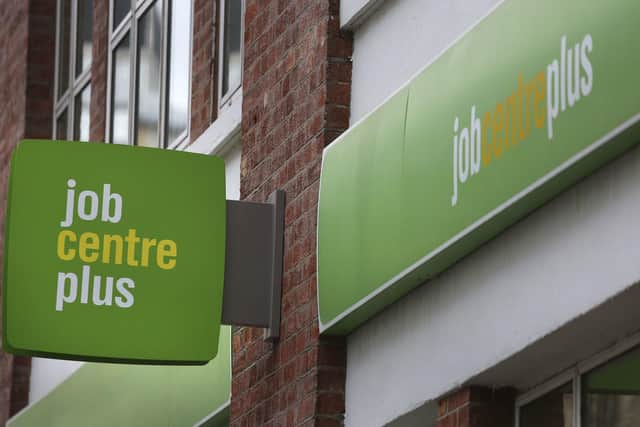Second jobs: Beware the pitfalls of taking on a secondary roles - Sarah Coles
And while some people can cope by cutting costs, there comes a point when we need to consider more drastic solutions.
According to the Bank of England, one in five people plan to try to earn more by working longer hours, switching jobs, or taking on a second job. If you’re considering taking on extra work to help make ends meet, you need to think carefully about the implications.
Advertisement
Hide AdAdvertisement
Hide AdThe first is to check your employment contract to make sure your current employer allows it. They might prevent you working for the competition, or taking a job that brings the company into disrepute, or they may stop you taking on another job entirely, so you need to find out where you stand.


If you are allowed to take on another job, and you can find something that works around your existing commitments, you also need to check you’re paying the right tax. Regardless of how many jobs you have, you still only have one personal allowance. So once you earn over £12,570 you’ll need to pay tax on everything else. If you currently make over the personal allowance in your first job, all the income from your second job will be taxable.
The tax code on the payslip for your first job (where the allowance is used) should be 1257L, and for the second job it should be either BR, D0 or D1, depending on the rate of tax you pay.
This is worth checking as soon as you receive your first payment. If it’s wrong, get in touch with HMRC and explain.
Advertisement
Hide AdAdvertisement
Hide AdIf you earn under the allowance in your first job, your second job will use up the rest of your allowance, and then everything above that will be taxable. You won’t be shocked to learn that the process of HMRC working all this out via two employers isn’t always seamless, so if you leave it to them you may need to wait until the end of the tax year for a refund. You’re better off contacting HMRC and letting them know.
The same goes for your tax thresholds, so if your combined income takes you over a tax threshold, the additional income will need to be taxed at the higher rate. If you leave it to HMRC to work it out, you may find yourself with a bill at the end of the year, so get in touch as soon as you start your new job.
If you are working for yourself in your second job, and you make more than the £1,000 trading allowance, you get into the realms of having to complete a self-assessment tax return. You need to register as self-employed with HMRC and complete tax return (and pay any tax) by January 31 each year. You’ll be responsible for keeping money aside, so you need to be very careful not to spend the cash you’ll need to pay out in tax.
Self-employment also throws up complications for student loan repayments. If you work for two employers, you will get the full repayment threshold from both of them before you have to make repayments. However, as soon as you have to complete a tax return, HMRC will calculate repayments based on all your earned income taken together, with just one repayment threshold. It will subtract any payments made through your employer, but there’s a good chance there will be more to pay on top.
Advertisement
Hide AdAdvertisement
Hide AdAnyone taking on more than one job will already be stretching themselves incredibly thin, so the extra admin is yet another thing to worry about. However, it’s essential to keep on top of it, because when money is tight, the last thing you need is an unexpected bill from the taxman or the student loans company.
You will also need to make a decision about pensions. For any job in which you earn £10,000 or more, you will be automatically put into the pension scheme.
If you’re doing this because you need all the extra cash, you may not want to pay pension contributions. However, think carefully about what you’ll be giving up, because you lose the employer contributions and the tax break too.
You will also pay less through two jobs than you would through one, because of the way the rules work.
Advertisement
Hide AdAdvertisement
Hide AdThe first £6,240 you make from each employer isn’t included in the calculations, so people with two jobs have far more earnings excluded. If you don’t feel you can afford contributions, check how much you’re actually paying, because it may be less than you think.
If, on the other hand, you can afford to make contributions, the fact so much of your earnings is excluded means you may need to consider topping up your pension payments. Meanwhile, if you earn below the threshold in either job, you can still ask to be enrolled into the pension.
Once you’ve considered all the financial implications, you also need to think about what it means for your life too. Just over ten years ago I was working three jobs: 5-9am, 9-5 and then 5-9pm, until I realised how much it was damaging my health and that I needed to stop.
It made me take a step back and realise that I couldn’t keep squeezing myself harder to earn more money, and I needed a radical change in how and where I lived, so I could find a solution I could sustain for the long term. So while taking on two jobs may work for you, don’t assume it’s the only option until you’ve considered absolutely every change you can make in your life.